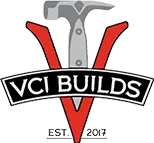Blogs

Understanding the General Contractor’s Role in a Construction
Understanding the role of a general contractor is essential when embarking on any construction project. A general contractor (GC) is responsible for overseeing the entire construction process, from start to finish. This includes managing the day-to-day operations, coordinating subcontractors, and ensuring the project stays on schedule and within budget. The general contractor acts as the central point of contact for the project, handling permits, inspections, and compliance with building codes.
Whether you're constructing a new home, renovating an existing property, or building a commercial space, the general contractor ensures that all aspects of the construction process run smoothly. Understanding the scope of a general contractor's responsibilities can help you make informed decisions, ensuring that your project is completed efficiently and to your specifications.
The Primary Responsibilities of a General Contractor
A general contractor plays a crucial role in the success of any construction project, ensuring that everything runs smoothly from start to finish. Their primary responsibilities involve managing every aspect of the project, including overseeing subcontractors, ensuring compliance with regulations, and handling budgeting.
Project Management: Overseeing all stages of the construction project, ensuring that tasks are completed on schedule.
Hiring Subcontractors: Coordinating and hiring skilled subcontractors for specialized tasks such as plumbing, electrical work, and more.
Budget Management: Keeping the project within budget by monitoring expenses and controlling costs.
Quality Control: Ensuring that construction work meets all quality standards and specifications.
Compliance: Handling permits, inspections, and ensuring adherence to local building codes and regulations.
A general contractor is integral to the smooth execution of a construction project, providing expertise, organization, and leadership to deliver results that meet both timelines and quality standards.
How a General Contractor Manages Project Timelines and Budgets
Managing timelines and budgets is one of the most crucial aspects of a general contractor's role. From the initial planning stages, the GC works closely with the client and project stakeholders to establish a realistic timeline for the project. They create detailed schedules, outlining key milestones and deadlines for each phase of construction.
Throughout the project, the general contractor monitors progress and makes adjustments as needed to stay on track. Regarding budgeting, the GC estimates costs for materials, labor, and any unforeseen expenses, ensuring that the project remains within the set financial limits. They track expenditures, manage invoices, and work with suppliers to keep costs controlled. Effective management of both timelines and budgets ensures that the project is completed efficiently and meets client expectations.

Coordinating Subcontractors: A General Contractor’s Role
A general contractor (GC) plays a pivotal role in ensuring that subcontractors work efficiently and effectively together on a construction project. Since most construction projects require specialized trades, such as plumbing, electrical work, and carpentry, the GC is responsible for coordinating these subcontractors, ensuring that each trade contributes to the project on time and according to the specifications.
Hiring Subcontractors: The GC selects qualified subcontractors based on the project's specific needs and requirements.
Scheduling Work: The GC coordinates the timing of when subcontractors will be needed, ensuring there are no overlaps or delays.
Ensuring Quality: The GC monitors the quality of subcontractors' work to ensure it meets project standards and specifications.
Facilitating Communication: The GC acts as the liaison between subcontractors, project owners, and other stakeholders.
Resolving Conflicts: The GC handles any issues or disputes between subcontractors, ensuring that work continues smoothly.
By efficiently managing subcontractors, the general contractor ensures that all aspects of the project come together seamlessly, leading to a successful and timely completion.
Understanding the Permitting and Compliance Tasks Handled by a General Contractor
A general contractor plays a pivotal role in securing the necessary permits and ensuring that the construction project complies with all local regulations and building codes. Before construction begins, the GC applies for and obtains permits required for the project, such as zoning, environmental, or safety permits. They work closely with local authorities to ensure all documentation is in order.
Throughout the construction process, the GC ensures that the work adheres to safety standards, construction codes, and any other legal requirements. This may involve regular inspections by local authorities to confirm compliance. By handling permitting and compliance tasks, the general contractor ensures that the project proceeds without legal delays or penalties, safeguarding both the project owner and the construction team.
The General Contractor’s Role in Quality Control and Inspections
Quality control is a critical aspect of a general contractor’s responsibilities. The GC is tasked with overseeing the entire construction process to ensure that the work meets the required quality standards. This involves inspecting the work of subcontractors at various stages of construction to ensure it adheres to the project’s specifications. The general contractor also ensures that the materials used are of the required quality and that all work complies with safety standards.
In addition to overseeing the work on-site, the GC coordinates with third-party inspectors, ensuring that the construction passes required inspections for permits and safety. A reliable general contractor takes the necessary steps to prevent issues that may affect the quality of the final product, ensuring the project is delivered to the client’s satisfaction.
How General Contractors Handle Communication and Project Updates
Effective communication is a cornerstone of successful construction projects, and general contractors are responsible for maintaining clear communication between all parties involved. The GC ensures that the client is regularly updated on the project’s progress, addressing any concerns or changes. They coordinate with subcontractors, suppliers, and the project team to ensure everyone is on the same page.
The general contractor also facilitates meetings to discuss progress, challenges, or delays and proposes solutions. Throughout the project, the GC acts as the liaison, providing a single point of contact for all inquiries and ensuring that information is relayed accurately and promptly. By maintaining clear and consistent communication, the general contractor helps prevent misunderstandings, delays, and errors, ensuring a smooth and efficient project from start to finish.
The Importance of Hiring a Licensed General Contractor for Your Project
Hiring a licensed general contractor is crucial for ensuring the success of any construction project. A licensed GC has demonstrated that they meet the required industry standards and are qualified to handle complex construction tasks. Licensing is an indicator of professionalism, ensuring that the contractor has the necessary knowledge, skills, and experience to manage your project safely and efficiently.
A licensed general contractor is also familiar with local building codes, regulations, and permitting processes, reducing the risk of delays or fines. Furthermore, licensed contractors often have insurance, which provides protection in case of accidents or issues during the project. By hiring a licensed general contractor, you can have peace of mind knowing that the work will be done correctly, safely, and in compliance with all legal requirements.

Conclusion
Understanding the role of a general contractor is essential to ensuring a successful construction project. From managing timelines and budgets to coordinating subcontractors and ensuring compliance, a general contractor is the key to bringing your vision to life. At VCI Builds, we specialize in managing all aspects of construction, ensuring quality and efficiency every step of the way. If you're ready to start your next project, contact us at (949) 978-0010 to discuss how we can help turn your ideas into reality. We're proud to serve Irvine, CA, and the surrounding areas.




